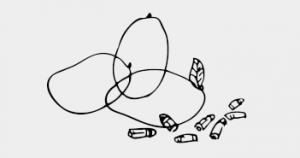 Tania Canas from the Australian organization RISE has published a list of 10 points for artists who want to create projects with refugees.
Tania Canas from the Australian organization RISE has published a list of 10 points for artists who want to create projects with refugees.
Canas emphasizes that artists would repeatedly display a limited understanding of their own biases and privileges.
A German translation of their recommendations can be found on the Kultur öffnet Welten website:
1. process, not product. We are not a resource that can be fed into your next project. You may be talented in your particular art, but don’t think that automatically leads to an ethical, responsible, and self-directed process. Deal with the developmental dynamics of groups, but also keep in mind that this is not an absolutely robust method. Who and which institutions benefit from this exchange?
2. critically question your intentions. Our struggle is not an opportunity for you as an artist, and our bodies are not a currency with which you can advance your career. Instead of focusing only on the “other” (“where do I find refugees”…etc.), subject your own intentions to critical, reflexive analysis. What is your motivation to work on this particular topic? And why now of all times?
3. be aware of your own privileges. Where are you biased, and what intentions, even if you think they are “good,” do you harbor? What social position (and power) do you bring to the table? Be aware of how much space you are taking up. Be clear about when you need to take a step back.
4. participation is not always progressive or empowering. Your project may have elements of participation, but be aware that this can also be limiting, tokenistic, and condescending. Your call for the community to share their stories could also weaken us. What framework have you set up for our participation? What power relations are you reinforcing with these conditions? What relationships do you make? (e.g., informant vs. expert; embassy vs. ambassador).
5. presentation versus representation. Know and notice the difference!
6. just because you say so does not make this a protected space. This requires long grassroots work, solidarity and dedication.
7. do not expect gratitude from us. We are not your next interesting art project. We are not sitting here waiting for our struggle to be recognized by your personal consciousness or to be brought into the light through your artistic practice.
8. don’t reduce us to one topic. We are people with experience, knowledge and skills. We can talk about many things; don’t reduce us to one narrative.
9. get informed. Know the solidarity work already done. Notice the subtle differences between organizations and projects. Just because we work with the same community doesn’t mean we work the same way.
10. art is not neutral. Our community is politicized, and every work of art made with or by us is inherently political. If you want to work with our community, you must realize that your artistic practice cannot be neutral.

